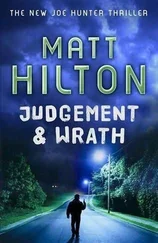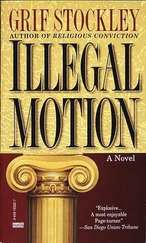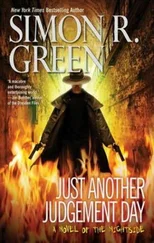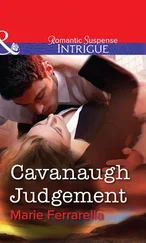Grif Stockley - Blind Judgement
Здесь есть возможность читать онлайн «Grif Stockley - Blind Judgement» весь текст электронной книги совершенно бесплатно (целиком полную версию без сокращений). В некоторых случаях можно слушать аудио, скачать через торрент в формате fb2 и присутствует краткое содержание. Жанр: Криминальный детектив, на английском языке. Описание произведения, (предисловие) а так же отзывы посетителей доступны на портале библиотеки ЛибКат.
- Название:Blind Judgement
- Автор:
- Жанр:
- Год:неизвестен
- ISBN:нет данных
- Рейтинг книги:4 / 5. Голосов: 1
-
Избранное:Добавить в избранное
- Отзывы:
-
Ваша оценка:
- 80
- 1
- 2
- 3
- 4
- 5
Blind Judgement: краткое содержание, описание и аннотация
Предлагаем к чтению аннотацию, описание, краткое содержание или предисловие (зависит от того, что написал сам автор книги «Blind Judgement»). Если вы не нашли необходимую информацию о книге — напишите в комментариях, мы постараемся отыскать её.
Blind Judgement — читать онлайн бесплатно полную книгу (весь текст) целиком
Ниже представлен текст книги, разбитый по страницам. Система сохранения места последней прочитанной страницы, позволяет с удобством читать онлайн бесплатно книгу «Blind Judgement», без необходимости каждый раз заново искать на чём Вы остановились. Поставьте закладку, и сможете в любой момент перейти на страницу, на которой закончили чтение.
Интервал:
Закладка:
The phone rings, and when Butterfield gets off, he promises to get me a
copy of the file tomorrow after the arraignment, and I leave his office understanding that Butterfield wants to convict Paul in the worst way.
What better springboard to office than the murder conviction of the biggest planter in the county? He probably doesn’t care about Bledsoe at all. Behind the courthouse I start up the Blazer. It is time to begin finding out about Paul Taylor.
Before it gets too dark, I drive around Bear Creek’s residential areas.
Though I was here three months ago, I am struck this visit by my hometown’s desolation on the eve of spring. The houses and businesses show the effects of years of neglect, a dismaying shabbiness I had not noticed earlier. In the summer the abundant honeysuckle vines, tiger lilies, and chinaberry trees framed by giant magnolia, pecan, and even persimmon trees hide the decay. As a child my favorite tree was the weeping willow. My friends and I stuffed the droopy branches down the backs of our britches and pretended we were horses.
On Sharp Street I drive slowly past our original family home. A wood two-story structure, it needs a paint job. Scott Nightingale, the town dentist whose work always required aspirin for days afterward, bought the house after Mother died, but he, too, is dead. Though there is a middle class and even some wealthy people still left in Bear Creek, many of the homes and yards seem shrunken. This area north of Hazelnut was my childhood universe. It occurs to me, for the first time in years, how much I loved it here.
From morning to night Elmer Burton, Joe Hood, Hannah Carlton and I played “Army” in these yards, shooting each other and dying and rising
to fight another day. The owners all knew us and our families intimately and watched out for us.
Two houses down from us lived the Carltons, my parents’ closest friends. For years it seemed that I spent every rainy day playing with Hannah in their attic. She was a year younger but truly, in those prepuberty years, my best pal. A smiling, happy tomboy wise beyond her years, Hannah never cried or got mad no matter how many games of go fish, blackjack, or checkers she lost.
To her, competition was merely an excuse for companionship. Winning was never the point, friendship was. To satisfy my curiosity one stormy Saturday morning we went in the bathroom, shut the door, and she pulled down her pants and showed me that bizarre, defenseless little crack between her legs. I reciprocated by exposing my equally exotic nub and its microscopic attachments.
That done, we went back to our games.
As I cruise by the tennis courts at the old high school where Tommy and I competed against each other more than three decades ago, I marvel at our innocence in those days. It was a life so safe and secure it seems almost laughable now.
No houses or cars were locked at night, much less during the day.
On Orchard Lane, I stop the Blazer in front of my old girlfriend’s house, knowing she could be a major source of information if she feels like talking.
Despite my status as a hometown boy, there are few, if any, people I feel I know well enough after all this time to trust completely or for them to feel like talking to me. Angela Marr is one of these few.
As I get out of the Blazer, I am reminded of the note she sent me last month after a case of mine was in the Democrat-Gazette. When I saw the return address, egotistical beyond all reason, I had assumed she was writing to congratulate me, when, in fact, she was letting me know that Dwight had died in December after a long battle with cancer. I had missed her husband’s obituary in the paper.
The letter unleashed a flood of warm memories.
Angela and I had started dating the summer after our senior year in high school. Both of us were almost strangers in Bear Creek that last summer before college. She had moved to town in January with her father, the new manager of Bear Creek’s one industry, a pants factory.
I had been off at Subiaco all through high school. So when we met the first week in June at the public library, we hit it off immediately.
For the rest of the summer we were inseparable.
Angela was the first liberal I had ever met, and before I was ever permitted to make love to her that summer in the back of my mother’s ‘58 Fairlane, I had to endure an earful about the South. It was 1963, the year of the civil rights march on Washington and Martin Luther King’s “I have a dream” speech. Segregation, with all its humiliations, was still in full flower in Bear Creek. Angela was appalled by our treatment of blacks and told me so at every opportunity, which was practically every
night, since there was only one movie theater and nowhere to go except the Dairy Delight.
When I confided to her how the Taylors had cheated my mother and then ostracized my family, it was simply confirmation of all she had read about our “morally bankrupt Southern way of life,” as she used to delight in calling it. That summer she must have been so grateful I took her seriously that one night our necking on Spire Road outside of town got out of hand, and in timehonored fashion, we made love by the glow of the dashboard lights. What actually bonded us forever that night was less our lovemaking than our frantic but ultimately unsuccessful efforts to get a speck of Angela’s virgin blood out of the seat covers That fall I drove off to the University in Fayetteville in the ‘58 Fairlane, and Angela flew east to Goucher College in Baltimore, but each summer we resumed our romance in Bear Creek until I did my Peace Corps training the summer after I graduated. After I left, Angela began to date Dwight Marr, whose father had just died and left him and his brother a thousand-acre farm east of Bear Creek. When I came back that summer from Albuquerque after completing my training, Angela was engaged. She married Dwight that December. He was a super guy, the kind who wins the county “Farmer of the Year” award, and Angela, who originally had hated the South, became a farmer’s wife. If she had been willing to wait on me, I am convinced we would have married, but it worked out for the best. In her December letter she called Dwight, a couple of years younger, as fine a man as she had ever known, and though I haven’t kept up with Angela much over the years, I have never heard a word differently. And, in my own case, I was truly happy with Rosa, who, as the saying goes, melted my butter like nobody ever has before or since.
“I was afraid you’d be out digging ditches or whatever farmers do in
winter,” I say when Angela opens her front door to me.
After registering a look of total surprise, she smiles broadly, making me glad I decided to stop by.
“You never did know a thing about farmers,” she says, as if we were continuing a conversation we had begun earlier this morning.
“You look cold. Come on in. I was about to heat up some vegetable soup.”
As I come through the door, she steps forward and hugs me.
“I got your letter,” she sniffs, beginning to cry.
“It was sweet.”
I press her close to me, amazed at how familiar her body feels after thirty years. I had written her back and told her how sorry I was about Dwight.
A great marriage is hard to find.
I stand back from her and take her in. She looks wonderful for a woman who, if memory serves, has just had her forty-eighth birthday. I notice a few crow’s-feet around her brown eyes, and there is some gray in her once jet-black hair, but she is still petite despite the birth of two kids, twin boys whom I presume are in their second semester at Arkansas State in Jonesboro. As a teenager, Angela’s most discussed physical feature among the boys was her perfectly rounded ass, but today, dressed in a roomy green and purple wind suit, the evidence of any damage done
Читать дальшеИнтервал:
Закладка:
Похожие книги на «Blind Judgement»
Представляем Вашему вниманию похожие книги на «Blind Judgement» списком для выбора. Мы отобрали схожую по названию и смыслу литературу в надежде предоставить читателям больше вариантов отыскать новые, интересные, ещё непрочитанные произведения.
Обсуждение, отзывы о книге «Blind Judgement» и просто собственные мнения читателей. Оставьте ваши комментарии, напишите, что Вы думаете о произведении, его смысле или главных героях. Укажите что конкретно понравилось, а что нет, и почему Вы так считаете.











